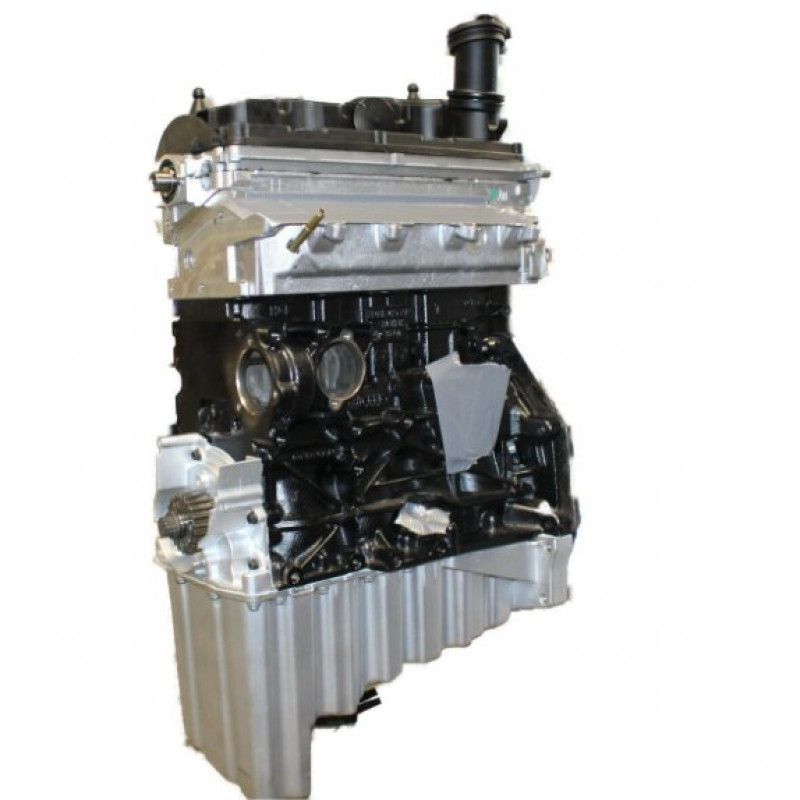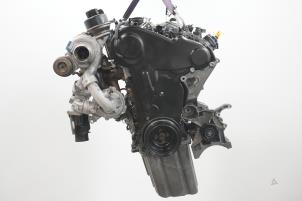Browsing the Process of Engine Selection: Key Factors to Consider
The process of engine selection is a diverse endeavor that demands cautious examination of several important variables to guarantee alignment with functional objectives. Efficiency requirements, gas performance, and financial restraints are simply the beginning; considerations around environmental effect and maintenance assistance play a critical duty in the decision-making structure.
Performance Requirements
When picking an engine, it is crucial to develop clear performance demands that line up with the desired application. Performance demands encompass a series of aspects, consisting of power output, torque qualities, and responsiveness, which should be tailored to the specific needs of the vehicle or machinery in inquiry.
Power outcome, usually measured in horsepower, figures out the engine's capacity to move a lorry or carry out a task successfully. Torque, on the various other hand, is vital for applications calling for solid initial acceleration or hefty training abilities. An understanding of the operational setting is additionally vital; as an example, engines made for off-road applications might require different performance attributes compared to those intended for highway usage.
In addition, think about the operational load and responsibility cycle, as these elements affect the engine's durability and reliability. In high-load circumstances, a robust engine layout may be required to protect against early wear or failure. In addition, performance needs need to likewise incorporate factors to consider for emission criteria and governing conformity, specifically in areas with strict environmental regulations. By defining these performance specifications early in the selection procedure, stakeholders can make enlightened choices that boost overall functional effectiveness and effectiveness.
Fuel Efficiency Factors To Consider
While efficiency requirements are critical, gas efficiency is equally essential in the engine option process, as it straight affects operating expense and ecological sustainability. Fuel-efficient engines take in much less gas each of work performed, which not only lowers total expenditure however likewise decreases greenhouse gas emissions. As organizations increasingly focus on sustainability, choosing an engine that maximizes gas performance can improve business obligation and compliance with ecological laws.
When examining gas effectiveness, it is vital to consider the engine's layout and technology - amarok engine for sale. Innovations such as turbocharging, straight gas injection, and hybrid systems can significantly boost fuel economic situation. In addition, comprehending the operating problems and duty cycles of the engine application is vital; engines might perform in a different way under varying rates and lots
Additionally, suppliers typically give gas intake data that can be used to compare different engine options. It is recommended to evaluate these specifications in real-world situations to guarantee accuracy. Lastly, the kind of gas made use of can additionally affect fuel performance; different fuels might supply much better efficiency and reduced emissions. In recap, gas performance is a multi-faceted factor to consider that needs complete analysis during the engine choice process.
Budget Plan and Price Evaluation
Spending plan and cost analysis functions as an essential element in the engine choice process, influencing both temporary financial investments and lasting functional expenditures. When reviewing potential engines, it is necessary to take into consideration not just the initial purchase price yet likewise the complete price of possession, which includes setup, maintenance, fuel intake, and potential downtime.
A thorough analysis ought to begin with the ahead of time prices related to the engine, including needed adjustments or ancillary devices. Nevertheless, focusing only on first expenses might cause misguided choices. Evaluating operating expense over the engine's life expectancy is equally essential, as more costly engines may use premium fuel effectiveness or lowered upkeep requirements, eventually resulting in cost savings.

Environmental Effect Elements
Comprehending ecological influence variables is vital in the engine option procedure, as sustainability considerations have actually come to be increasingly important for both regulatory conformity and company obligation. Organizations needs to assess the emissions created by different engine types, including co2, nitrogen oxides, particulate issue, and unburned hydrocarbons. These exhausts contribute substantially to air contamination and environment adjustment, necessitating a careful analysis of the engine's ecological impact.
Furthermore, gas type plays a critical function in ecological influence. Engines powered by eco-friendly power resources, such as biofuels or hydrogen, have a tendency to have a reduced ecological impact compared to standard nonrenewable fuel sources. Furthermore, the lifecycle assessment of the engine, from production through procedure to disposal, should be thought about to recognize the complete extent of its ecological ramifications.

Maintenance and Support Options
When selecting an engine, the schedule of upkeep and support alternatives is an essential consideration that can dramatically impact operational efficiency and longevity. Comprehensive maintenance plans ensure that the engine runs at peak efficiency and reduces unexpected downtimes. It is important to examine the manufacturer's assistance network, including the accessibility of certified service technicians and service facilities.
Assessing the availability of extra parts is additionally vital. A reputable supply chain for parts can reduce lead times for repairs and upkeep, thereby boosting overall productivity. In addition, consider the ease of acquiring technological paperwork and training sources, which are crucial for making sure that workers are fully equipped to deal with routine and emergency scenarios.
An check over here additional important variable is the service warranty and service agreements supplied by the producer. Inevitably, a positive technique to upkeep and assistance not only prolongs the life of the engine but additionally contributes to the general success of the operation.
Conclusion
Finally, the process of engine option requires a detailed analysis of Extra resources various important variables, consisting of performance requirements, gas efficiency, budget restrictions, environmental effect, and upkeep assistance. By carefully evaluating these components, informed decisions can be made that straighten with functional goals and sustainability objectives. Eventually, a critical approach to engine choice will certainly ensure optimum efficiency and longevity while dealing with economic and ecological considerations properly.
While efficiency demands are important, fuel performance is similarly vital in the engine option process, as it directly impacts operating costs and ecological sustainability. As companies progressively focus on sustainability, selecting an engine that optimizes gas performance can enhance company duty and compliance with environmental regulations.
Additionally, understanding the operating problems and task cycles of the engine application is important; engines may do in a different way under varying rates and tons. (amarok engine for sale)
Assessing operating costs over the engine's lifespan is just as crucial, as a lot more costly engines might offer exceptional fuel performance or decreased maintenance requirements, inevitably leading to set you back financial savings.
In verdict, the procedure of engine selection demands an extensive evaluation of various crucial factors, including efficiency requirements, fuel efficiency, spending plan restraints, environmental impact, and upkeep assistance. - amarok engine for sale